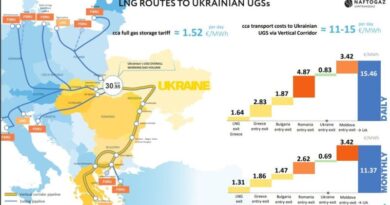What to Expect from Russia in August 2025: A Month of Strain, Shifts, and Strategic Reckonings
August has long carried an ominous reputation in Russian history — often dubbed the “August curse.” From the failed coup of 1991 and the 1998 financial default, to the Kursk submarine disaster in 2000 and the war in Georgia in 2008, this month has repeatedly marked moments of crisis and upheaval.
As August 2025 approaches, Russia once again stands at a potential inflection point. Beset by economic strain, geopolitical confrontation, and internal volatility, the country may be entering another month that tests the limits of its political and institutional resilience.
Economic Pressures: Budget Holes, Inflation, and Regional Squeeze
Russia’s budgetary crisis is deepening. The National Welfare Fund (NWF), which has helped paper over fiscal gaps in recent years, is nearing exhaustion. As of May 2025, its usable reserves had dropped to just $40 billion, while the projected year-end deficit is expected to exceed $50 billion. Mid-year budget revisions are already underway, signaling growing urgency.
Observers note that the Kremlin is rapidly running out of options: borrowing from China, printing money, and cutting social expenditures are all on the table. Austerity is no longer abstract — it is hitting the regions. Reports from Irkutsk and elsewhere indicate shortened working hours and salary reductions in regional administrations.
The NWF was originally intended to support the pension system, but that role is now effectively abandoned. The crisis in social welfare is fueling increasingly desperate proposals in the Duma, such as levies on childless families or families supporting elderly parents — shifting the state’s burden onto citizens.
Public frustration is growing, driven by:
- Soaring prices for both imported goods (electronics, appliances) and staples (potatoes, carrots, cereals).
- High inflation and a weakening ruble, despite rising dollar revenues.
- Drone strikes on Russian territory, which have shattered the illusion of safety and amplified the psychological toll of the war.
In response, the government is considering price controls on key foodstuffs — vegetables, dairy, and poultry — in coordination with major producers’ associations. This may be a pre-emptive move to buffer against the inflationary shock expected from a forced ruble devaluation. In practice, it signals a state cornered into transferring the cost of war onto households and businesses.
Geopolitical and Military Flashpoints
The war in Ukraine remains central to Russia’s trajectory. Several potential developments loom in August:
- Ukrainian strikes on major Russian cities, including Moscow and St. Petersburg.
- Kremlin escalation tactics, such as nuclear threats, cyberattacks, or staged provocations (“false flag” operations). One of the more chilling scenarios is a covert attack on the Zaporizhzhia Nuclear Power Plant, potentially creating a new Chernobyl and blaming Ukraine.
- Destabilization in the Caucasus, especially Chechnya, where succession within the Kadyrov clan could unravel existing power balances.
- Tensions with Central Asian allies, including Azerbaijan and Kazakhstan, and even growing frictions with Belarus.
Internal Power Struggles and Repression
August may also bring intensified infighting within the Russian elite. The post-Prigozhin power vacuum continues to reshape siloviki (security) networks. Military commanders are increasingly targeted for scapegoating amid battlefield setbacks, raising the stakes within the top echelons.
Likely developments include:
- Repressive clampdowns: new laws targeting media, the internet, opposition figures, and independent business voices.
- State-sanctioned redistribution of wealth within Putin’s wartime elite — rewards for loyalty, punishments for failure.
- Unexplained deaths and “accidents”: a hallmark of intra-elite strife in today’s Russia, replacing the gangland killings of the 1990s with “balconing” incidents, suspicious suicides, and medical anomalies.
As political rationales wear thin, Kremlin-aligned media are increasingly invoking mysticism and astrology to justify developments. This turn to pseudo-spiritual messaging — including predictions tied to the full moon (August 9) and new moon (August 23) — reflects a regime seeking legitimacy beyond reason.
Propaganda and Technonationalism
In the absence of battlefield victories, the Kremlin is leaning heavily on scientific and technological grandstanding to boost national pride. Among the expected claims:
- A “red medicine” breakthrough that will supposedly revolutionize cancer treatment.
- Advances in artificial intelligence, including hints at “self-aware” systems.
- A revived Roscosmos, promising SpaceX-like capabilities within two years.
- New “unparalleled” weapons, designed to intimidate the West and coerce concessions on Ukraine.
These announcements are less about substance and more about spectacle — reminiscent of Soviet-era posturing.
Hybrid Operations and Regional Destabilization
Russia’s geopolitical isolation may push it toward hybrid tactics beyond Ukraine. Likely targets include:
- Disinformation and subversion campaigns in the Baltics, Moldova, Bulgaria, and Romania.
- Use of energy and migration as tools of pressure.
- Underground networks — linking Russian intelligence with organized crime — mobilized for arson, sabotage, and public disorder.
Of particular note is Bulgaria’s new vulnerability. Once peripheral in NATO planning, it is now increasingly seen as a zone of interest for Russian destabilization.
August 2025: A Stress Test for the System
August is not just a month — it is a crucible. The resilience of Putin’s regime will be tested by:
- Developments on the battlefield in Ukraine;
- Power shifts within the elite;
- Socioeconomic resilience under tightening conditions;
- The West’s ability to sustain pressure without losing focus.
If history is a guide, August rarely passes quietly in Russia. Whether through war, repression, crisis, or spectacle, this month may once again offer a window into the regime’s fragility — and its enduring capacity for drama.
Ilian Vassilev



